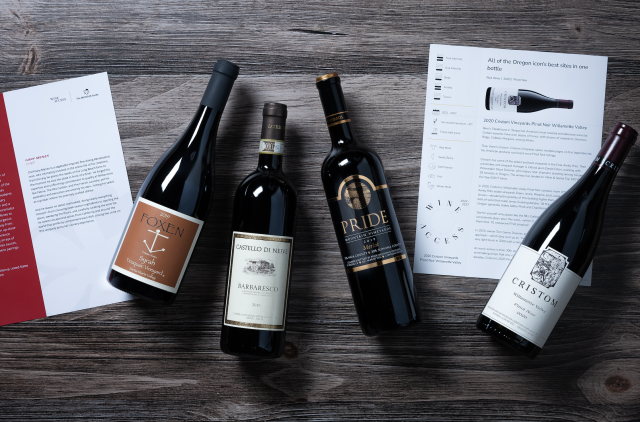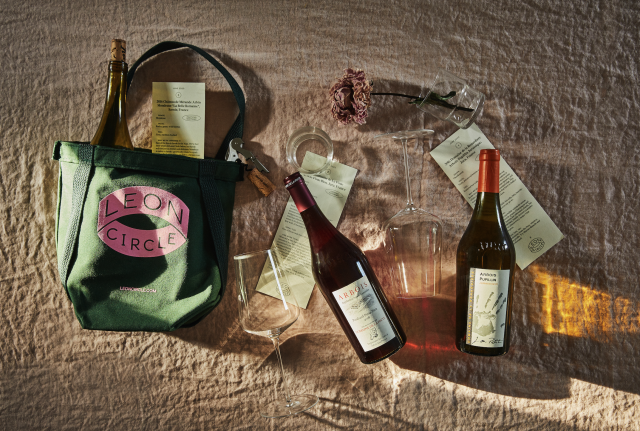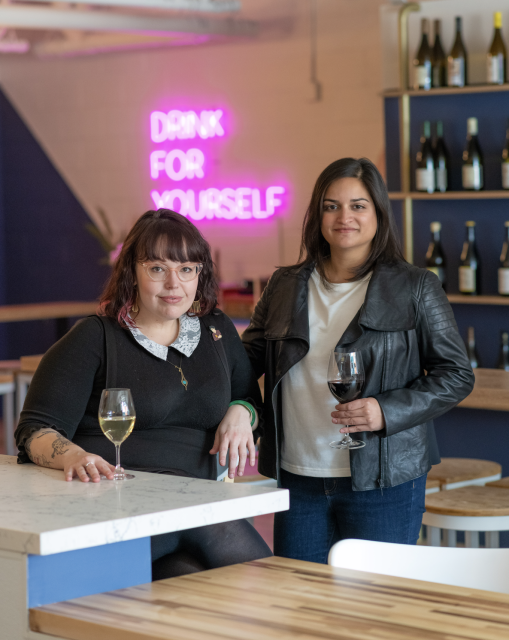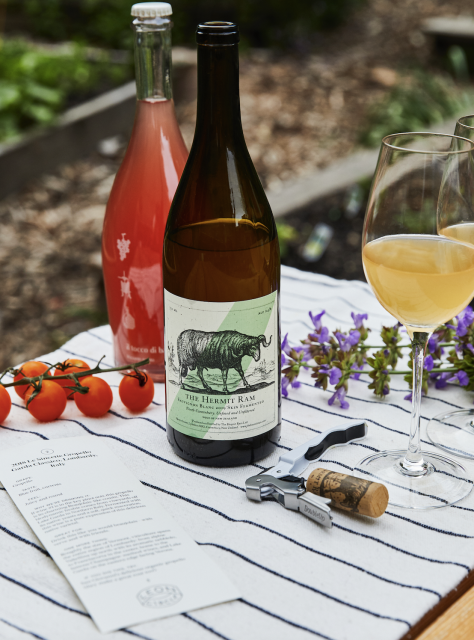This website uses cookies so that we can provide you with the best user experience possible. Cookie information is stored in your browser and performs functions such as recognising you when you return to our website and helping our team to understand which sections of the website you find most interesting and useful.
Are reports of wine’s demise greatly exaggerated?
Everyone bemoans the lack of interest in wine among Millennials and Gen Z, but wine producers and online retailers in the US are finding that the younger generation love a tailored subscription – and will outspend Boomers and Gen X significantly if the offer is right. Kathleen Willcox reports.

For anyone hoping to sell a product, retirees are the least-attractive subset of the market, simply because – sad as it is to say – they only have so many years ahead of them.
And if that’s your only growth segment (and you’re not selling coffins) you know the future of your product is, well, dead.
This, notoriously, is the situation wine finds itself in. The 60+ age group is the only growth segment in the wine market, writ large, according to the latest State of the Wine Industry Report. Juicy Gen Z and Millennials, meanwhile, with decades of spending ahead of them, are “increasingly less engaged with the wine category,” per Rob McMillan’s meticulously researched report.
But we shouldn’t bury the wine industry yet, because there are signs the Gen Z and Millennials love to buy wine, when it’s sold in a particular way.

Selling via subscriptions and clubs
Younger consumers welcome getting everything from sandwiches to beauty products delivered to them on a subscription basis. A recent survey from Morning Consult found that almost half of Gen Z (46%) and Millennials (49%) were interested in subscriptions, compared with about one-third (34%) of the general public overall.
Restaurants, healthcare and retail garnered the most interest, especially when the subscriptions were linked to internet personalities and content creators. Almost half of Gen Z (48%) and Millennials (44%) expressed interest in products linked to online celebs and creators.
For Gen Z and Millennials, the only thing that’s better than a subscription, is one that suits their particular goals and desires – especially when it’s touted on social media, where Gen Z spends, on average, more than four hours scrolling, clicking and buying every day. Read on for specifics.

Personalization options and offbeat options
Everyone likes to feel special – especially Gen Z and Millennials.
The Napa Valley’s Tank Garage Winery produces one-off limited wines, which Feuchuk compares to the “sneaker drop model.” Tank works with 45 varieties, from traditional reds and whites to offbeat blends, natural wines, orange wines, pet nats and more.
Anyone can buy their wines at the winery or online, says Ed Feuchuk, Tank’s general manager. But where they’re really finding traction in the marketplace is through their MADE Club.
The club has three levels: three, six or 12 bottles, with five releases a year and flexibility to skip and adjust shipment dates. Club members also get discounts, free tastings, event tickets and access to wines no one else can try.
“When we get feedback on MADE from surveys we send out, we hear that the single biggest reason they join and stay is the variety and flexibility we offer,” Feuchuk says. “Younger consumers especially want choice and personalization – they want their needs to be catered to.”
Eight-five percent of their club members are under the age of 50, with 15% in their 20s and 40% in their 30s. That’s changed, Feuchuk says.
“When we opened in 2014, our club was fairly traditional in its demographic breakdown,” he says. But we’ve found that being an oddball in Napa with unique offerings and a vast variety has really shifted the breakdown toward younger consumers.”
Now, MADE brings in more than 50% of its revenue through the club, which it markets via email, Instagram, TikTok and SMS messaging.
Bottom line though, Feuchuk credits the success of the club to “Tank being an authentic brand. We have a deliberate identity and a reason for existing – young people see through bullshit.”

Co-branding with top content creators
The Napa-based online wine retailing juggernaut Wine Access has found that partnering with prominent content providers and creators has helped drive triple-digit growth in its curated wine clubs over the past four years.
Its wine clubs now account for about 15% of its revenue, says Wine Access CEO Joe Fisch.
“We expected most of the base to be Gen X and Baby Boomers, especially with ones like the Michelin club, where we’re teaming up with restaurants that cost several hundred dollars for a single meal on wine selections,” Fisch says. “But just over half – 51% – are actually Gen Z and Millennials. We have found that the younger consumer base responds well to the curated selections from trusted experts, and the rich storytelling that goes along with it.”
Wine Access offers nine clubs – including the Discovery Club, with an educational theme for each shipment (6 bottles for $150), the Collectors Club; with prestigious wines from blue-chip estates (1 bottle for $250-$400); and co-curated clubs like The Michelin Guide (3 bottles for $160-$200) and Decanter (6 bottles for $250-$300).
“Across the board our wine clubs do well, but I have been especially impressed with the results on the partnerships,” Fisch says, explaining that their counterparts are as invested in the clubs’ success as Wine Access is, and “cross-promote the club organically on social media, in email marketing campaigns, and in the case of our Wine for Normal People club, on Elizabeth Schneider’s popular podcast.”
Fisch says he expects the strong club growth to continue through the next few years at least.

Appealing to their altruistic side
The vast majority of Gen Z and Millennials vote with their dollars. Nielsen reports that 75% of Millennials change their buying habits to favor eco-conscious brands. Other studies show that Gen Z prioritizes diversity and inclusion.
At San Francisco’s wine bottle shop and bar DecantSF, sommeliers and founders Cara Patricia and Simi Grewal have created multiple clubs – including an Explorer Club featuring new releases and Serious Inquiries only featuring high-value library aged cellar beauties.
The Explorer Club has captured the interest of Gen Z and Millennials, the pair say.
“It gives them an opportunity to explore,” Patricia says, explaining that it may also appeal to their values. “In March, we worked with all woman-made wines from Spain and California that push the boundaries of interesting terroirs and natural winemaking. In February, we focused on the theme of ‘Love’ and featured wines that were made as collaborations between a Chef and Winemaker couple, a winery whose profit sharing with their vineyard worker shows a new kind of love, and a biodynamic wine where the love for the earth and vineyard biodiversity is foremost.”
About 75% of their Explorer Club membership consists of people 21 to 40 years old, whereas their other clubs skew 40+.

Creating loyalty through hyper-targeting
Finding a great store where the owner knows your likes and dislikes, and always has a new bottle for you to try, is the stuff wine lover dreams are made of. Brooklyn’s small, natural-wine focused shop in Brooklyn has taken that model and made it digital.
“Our Gen Z and Millennial consumers want different things,” says owner Chris Leon of the Leon Circle club he launched in 2018. “Millennials are experiential and focused on the narrative connected to the wine. And Millennials are general more learned consumers who understand their dislikes: Pedigreed producers like COS or Louis Magnin appeal to them.”
Gen Z, meanwhile, are newer to the wine game.
“They’re motivated by an accessible, easy drinking profile,” he says. “Chilled reds, fresh sparkling wines are hits. Generationally, they’re coming into a landscape where natural, low sulfur wines are a core part of the wine industry. We’ve found that the crémant from Steinmetz or the no-sulfur MicroBio Verdejo are hugely successful.”
The club serves of three bottles of wine with cheat sheets on grapes, tasting notes, meal pairing ideas and similar wines for $75, and they ship nationally. Started as a personal project, in 2018, it was less than 1% of the wine shop’s business; today, it brings in close to 10% of the revenue.
In addition to driving revenue today, wine subscription models pave the way for success tomorrow. A whopping 81% of Gen Z and 77% of Millennials report being more loyal to brands they hold subscriptions to, compared with 67% of Gen X and 54% of Baby Boomers.
For producers and shops that haven’t joined the wine club club yet—and are invested in growing their business with younger markets—perhaps it’s time.

